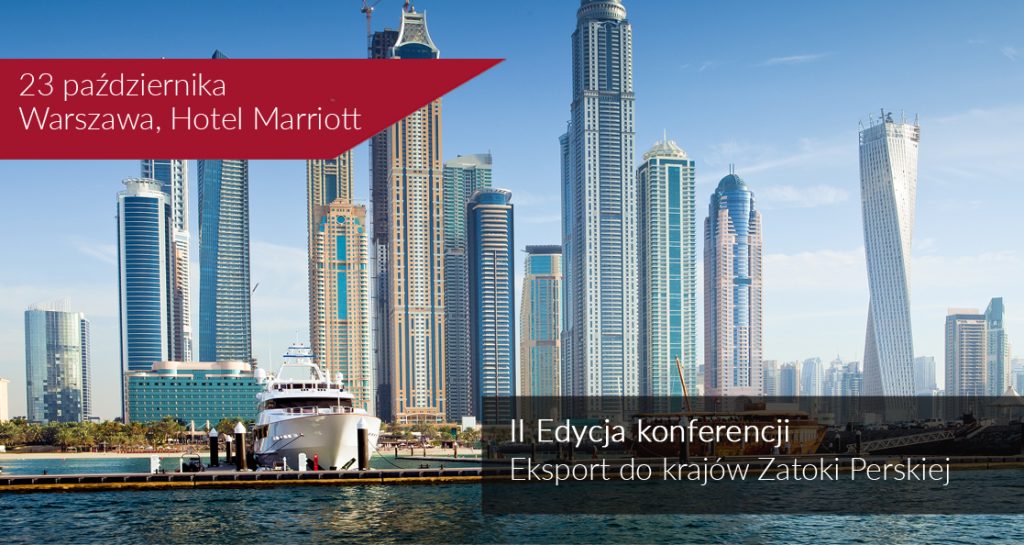 Everyone has a right to obtain information on the activities of the Polish Ministry of Justice. It relates to the functioning of the Polish judicial system and explanation of Polish regulations in the scope foreseen in the legal provisions. This issue has been fully regulated by the Act on Access to Public Information, as well as by the Order No. 197/14/BM of the Minister of Justice dated 18 December 2015 on making public information available.
Everyone has a right to obtain information on the activities of the Polish Ministry of Justice. It relates to the functioning of the Polish judicial system and explanation of Polish regulations in the scope foreseen in the legal provisions. This issue has been fully regulated by the Act on Access to Public Information, as well as by the Order No. 197/14/BM of the Minister of Justice dated 18 December 2015 on making public information available.
This mechanism is very useful for the purposes of pursuing a variety of cross border cases, particularly related to international legal issues. The information is delivered in the Polish language, upon the relevant application.
More
 In accordance with article 8 paragraph 2 of the Act on the acquisition of real estate by foreigners, reflecting the provisions of the Treaty of accession of Poland to the European Union in respect of the acquisition of real estate by foreigners, it is not required to obtain a consent by foreigners who are the nationals of or entrepreneurs of the Member States of the European Economic Area or the Swiss Confederation. The last restriction on the obligation to obtain a permit (consent) to acquire real estate and forestry by the said foreigners has expired on 30 April 2016, and since 01 May 2016 foreigners from the EEA and the Swiss Confederation do not need to have the permission of the Minister of the Interior to acquire any real estate.
In accordance with article 8 paragraph 2 of the Act on the acquisition of real estate by foreigners, reflecting the provisions of the Treaty of accession of Poland to the European Union in respect of the acquisition of real estate by foreigners, it is not required to obtain a consent by foreigners who are the nationals of or entrepreneurs of the Member States of the European Economic Area or the Swiss Confederation. The last restriction on the obligation to obtain a permit (consent) to acquire real estate and forestry by the said foreigners has expired on 30 April 2016, and since 01 May 2016 foreigners from the EEA and the Swiss Confederation do not need to have the permission of the Minister of the Interior to acquire any real estate.
A legal person that is a commercial company based in Poland, where the majority shareholder is a legal entity based abroad, is a foreign national within the meaning of the Act on the acquisition of the real estate by foreigners. At the same time, such entity is an entity from the European Economic Area by the fact that it is established in Poland which is an EEA member state, qualifying as a legal person from the EEA.
In view of the above, a commercial company based in Poland, controlled by a company based abroad is a foreigner from the EEA. Such entity is regulated by article 8 paragraph 2 of the Act on acquisition of real estate by foreigners which means that currently such entity does not have to be granted the permission of the Minister of the Interior to acquire any real estate.
More
 In Poland there are two records of entities carrying out economic activities:
In Poland there are two records of entities carrying out economic activities:
– the National Court Register (Polish: KRS – Krajowy Rejestr Sądowy)
Polish National Court Register is a centralized database that consists of three separate registers: the register of entrepreneurs; the register of associations, social and professional organisations, foundations and public health care facilities; the registry of debtors. The task of the Polish National Court Register is to provide information on the legal status of a registered entity (e.g. company), the most important elements of its financial situation and its representation. Making the entry in the National Court Register is also possible by electronic access to the Registry Court. The company’s application for the entry to the register is subject to a fee amounting to 500 PLN.
More

KG Legal participated in an online seminar carried out by the specialists in cross-border disputes: Mrs. Adriana Uson from the Singapore International Arbitration Centre and Mrs. Danielle Carr – Senior Associate (Australia) in SCA ONTIER LLP in London.
Some of the other participants were from SAP, Hilti, Metlife, Vodafone Hutchison, NCR Corporation, John Deere, Skadden, Optum Global Solutions, UPL Limited and TATA Steel.
The webinar involved the key methods for resolving cross-border disputes, minimising the risk of them and managing them in the course of proceedings.
More
 KG Legal enforces a debt for a very regonised Austrian financial institution, regarding arrears in payments from a Polish entity. KG Legal has chosen European small claims procedure (ESCP) as the most suitable way of enforcement in this case. This procedure is foreseen in Regulation (EC) No 861/2007, which could be found here. The value of the claim in ESCP cannot exceed €2000. According to Article 27b of the Polish Act of 28 July 2005 on Court Costs in Civil Cases, court fee in a case examined in ESCP is fixed and amounts to 100 PLN.
KG Legal enforces a debt for a very regonised Austrian financial institution, regarding arrears in payments from a Polish entity. KG Legal has chosen European small claims procedure (ESCP) as the most suitable way of enforcement in this case. This procedure is foreseen in Regulation (EC) No 861/2007, which could be found here. The value of the claim in ESCP cannot exceed €2000. According to Article 27b of the Polish Act of 28 July 2005 on Court Costs in Civil Cases, court fee in a case examined in ESCP is fixed and amounts to 100 PLN.
More
 KG Legal provides legal assistance to Iranian investors in Poland in respect of new strict legal provisions of VAT registration of foreign companies.
KG Legal provides legal assistance to Iranian investors in Poland in respect of new strict legal provisions of VAT registration of foreign companies.
More
 The Conference will take place on 23 October 2017 in Warsaw in Hotel Mariott. KG Legal will actively participate in this evet which is dedicated to all entrepreneurs who invest in the Arab States of the Persian Gulf.
The Conference will take place on 23 October 2017 in Warsaw in Hotel Mariott. KG Legal will actively participate in this evet which is dedicated to all entrepreneurs who invest in the Arab States of the Persian Gulf.
More

KG Legal is an official media patron of the Second Edition of the Warsaw Conference “Export to the Arab States of the Persian Gulf”.
The Conference will take place on 23 October 2017 in Warsaw in Hotel Mariott. KG Legal will actively participate in this evet which is dedicated to all entrepreneurs who invest in the Arab States of the Persian Gulf.
The article relating to the export to the Middle East referring to the Conference: http://bit.ly/2sNyb52
Facebook event: https://www.facebook.com/events/350187868717682/
Conference website: konferencja2edycja.biznesdubaj.pl
More
 While enforcing a foreign judgement in civil or commercial disputes in country other than the one where the court is located, there appears the need to apply EU regulations in that case. Legal provisions that are supposed to help in a quick and flawless closing of the case are provided by Regulation no 1215/2012 of the European Parliament and the Council on jurisdiction and the recognition and enforcement of judgments in civil and commercial matters.
While enforcing a foreign judgement in civil or commercial disputes in country other than the one where the court is located, there appears the need to apply EU regulations in that case. Legal provisions that are supposed to help in a quick and flawless closing of the case are provided by Regulation no 1215/2012 of the European Parliament and the Council on jurisdiction and the recognition and enforcement of judgments in civil and commercial matters.
That legal act provides for automaticity of recognition of sentences issued by other EU courts. However, annex 1 contains regulations on certificate concerning the judgement. This certificate, issued by the court, should be handed to the defendant and it contains information about the court of origin (name, address, contact data), claimants, defendants and the judgement.
When it comes to the judgement, its summary should include the date of judgement, its reference number, the information whether it is enforceable in other member states without any further conditions, the terms of the judgement, the principal amount enforced and the interest, together with short description of the subject-matter of the case and the decision about the awarded sum (principal amount, possible instalments, currency, rate or amount of interest, decision about the costs of proceedings). After the judgment and the certificate are provided, there can take place the enforcement of the judgment by the bailiff in Poland.
More
 Everyone has a right to obtain information on the activities of the Polish Ministry of Justice. It relates to the functioning of the Polish judicial system and explanation of Polish regulations in the scope foreseen in the legal provisions. This issue has been fully regulated by the Act on Access to Public Information, as well as by the Order No. 197/14/BM of the Minister of Justice dated 18 December 2015 on making public information available.
Everyone has a right to obtain information on the activities of the Polish Ministry of Justice. It relates to the functioning of the Polish judicial system and explanation of Polish regulations in the scope foreseen in the legal provisions. This issue has been fully regulated by the Act on Access to Public Information, as well as by the Order No. 197/14/BM of the Minister of Justice dated 18 December 2015 on making public information available. In accordance with article 8 paragraph 2 of the Act on the acquisition of real estate by foreigners, reflecting the provisions of the Treaty of accession of Poland to the European Union in respect of the acquisition of real estate by foreigners, it is not required to obtain a consent by foreigners who are the nationals of or entrepreneurs of the Member States of the European Economic Area or the Swiss Confederation. The last restriction on the obligation to obtain a permit (consent) to acquire real estate and forestry by the said foreigners has expired on 30 April 2016, and since 01 May 2016 foreigners from the EEA and the Swiss Confederation do not need to have the permission of the Minister of the Interior to acquire any real estate.
In accordance with article 8 paragraph 2 of the Act on the acquisition of real estate by foreigners, reflecting the provisions of the Treaty of accession of Poland to the European Union in respect of the acquisition of real estate by foreigners, it is not required to obtain a consent by foreigners who are the nationals of or entrepreneurs of the Member States of the European Economic Area or the Swiss Confederation. The last restriction on the obligation to obtain a permit (consent) to acquire real estate and forestry by the said foreigners has expired on 30 April 2016, and since 01 May 2016 foreigners from the EEA and the Swiss Confederation do not need to have the permission of the Minister of the Interior to acquire any real estate.
 In Poland there are two records of entities carrying out economic activities:
In Poland there are two records of entities carrying out economic activities:

 KG Legal provides legal assistance to Iranian investors in Poland in respect of new strict legal provisions of VAT registration of foreign companies.
KG Legal provides legal assistance to Iranian investors in Poland in respect of new strict legal provisions of VAT registration of foreign companies.

 While enforcing a foreign judgement in civil or commercial disputes in country other than the one where the court is located, there appears the need to apply EU regulations in that case. Legal provisions that are supposed to help in a quick and flawless closing of the case are provided by
While enforcing a foreign judgement in civil or commercial disputes in country other than the one where the court is located, there appears the need to apply EU regulations in that case. Legal provisions that are supposed to help in a quick and flawless closing of the case are provided by 